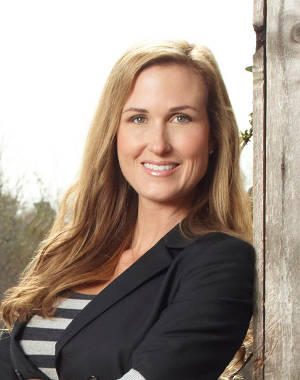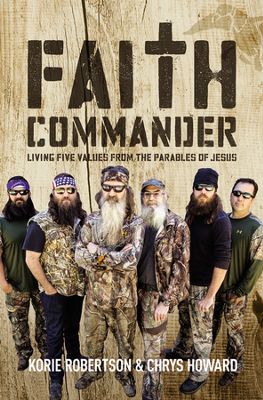Look at a dollar bill and you’ll read “In God We Trust.” Visit the US Supreme Court and you’ll see, on the South Wall Frieze, Moses holding the Ten Commandments. The US Capitol building includes the Congressional Prayer Room, “to provide a quiet place where individual Representatives and Senators may withdraw to seek Divine strength and guidance;” it’s stained glass window bears the words, “Preserve me, O God: for in thee do I put my trust. Psalm 16:1.” From its founding, America has been heavily influenced by the Bible’s message and principles. Yet many (if not most) people are unaware of the Bible’s central role in US civic life.
“to provide a quiet place where individual Representatives and Senators may withdraw to seek Divine strength and guidance;” it’s stained glass window bears the words, “Preserve me, O God: for in thee do I put my trust. Psalm 16:1.” From its founding, America has been heavily influenced by the Bible’s message and principles. Yet many (if not most) people are unaware of the Bible’s central role in US civic life.
 Angela E. Kamrath is vice-president and project director of American Heritage Education Foundation (@AmericaEducate). Bible Gateway interviewed her on her book, The Miracle of America: The Influence of the Bible on the Founding History and Principles of the United States of America for a People of Every Belief (Xulon Press, 2013) (MiracleOfAmerica.net).
Angela E. Kamrath is vice-president and project director of American Heritage Education Foundation (@AmericaEducate). Bible Gateway interviewed her on her book, The Miracle of America: The Influence of the Bible on the Founding History and Principles of the United States of America for a People of Every Belief (Xulon Press, 2013) (MiracleOfAmerica.net).
What concern do you have that drove you to research and write this book?
Ms. Kamrath: Studies show that Americans today are largely uneducated about American history, government, and civics and about America’s founding ideas. Many schools are not teaching these subjects or have deemphasized them. Widespread ignorance is a serious problem in a self-governing republic like the United States, in a nation governed by its people. Experts affirm that we cannot sustain our nation as it was originally designed if we don’t know where we came from or what we stand for. Founder Thomas Jefferson observed, “If a nation expects to be ignorant and free, in a state of civilization, it expects what never was and never will be.” I wrote The Miracle of America as a solution to help Americans and others worldwide understand our founding principles and where they originated. It highlights key ideas over centuries that directly impacted American thought and the American ethic.
What do you see as the “American ethic” and how does the Bible relate to it?
Ms. Kamrath: The American ethic is a set of principles and values that form the American idea. These values are part of our nation’s founding political philosophy. Much of our ethic is conveyed in the Declaration of Independence. For example, our country was founded on the belief that a Creator God is the highest authority over all mankind and is the ultimate Law-maker. American civil laws are considered legitimate only when they align with a universal moral law—the Law of Nature and God. Romans 2:14-15 says this law is written on all men’s hearts or conscience. It mirrors the Bible’s Law of Love found in Matthew 22:37-40—to love God and others.
Human rights originate from the Creator, not mortal men. As such, man’s God-given, natural rights including life and liberty cannot be taken away by other men. These rights are unremovable or “unalienable.” Most early Americans had a biblical worldview that supported their political view about natural rights. They drew from Genesis 1 and Acts 17 in which God created humans—with dignity, capability, and authority. In Acts 17:28, Paul affirms, “In God we live and move and have our being.” Others upheld this view by self-evident truth or common sense that mankind obviously has a Creator, and this Creator gives men certain rights.
Explain why you say the Bible is America’s “most significant foundational root and its enduring source of strength.”
Ms. Kamrath: When you look at where America’s founding political-moral principles come from, you find that most go back to ideas that were based on and defended from scripture. Research shows that the Bible was the primary source of ideas for early Americans. It was their instruction manual for building a civil society.
How does the Bible play a role in America’s founding documents, such as the Mayflower Compact, the Declaration of Independence, the Constitution, and the Bill of Rights?
Ms. Kamrath: America’s founding documents are the means by which we examine, preserve, and transmit our values and ideas, our philosophy and laws, from one generation to the next. The fact that we find Bible-based ideas and practices in these written documents is proof of the Bible’s influence in our nation’s roots. Miracle of America looks at all of these documents.
What is popular sovereignty and how does the Bible influence it?
Ms. Kamrath: Popular sovereignty, or the people’s rule, is the idea that all humans are equal in standing. As such, political power resides with all the people—not with any particular person or group. The people may freely choose who they wish to govern their nation, and their governor(s) hold legitimate authority through the consent of the governed. This idea is found in the Declaration which states that governments derive “their just powers from the consent of the governed.”
Popular sovereignty developed during the Protestant Reformation and Counter-Reformation. It is based on Genesis 1 in which God created mankind and gave dominion to all humans, not to any particular person or group. Philosopher John Locke supported this point.
What influence did the Bible have with the Pilgrims?
Ms. Kamrath: When the Pilgrims landed in America, they had to figure out how to survive in a harsh environment. So they signed an agreement to stick together and form a civil body. This agreement was the Mayflower Compact, and it was quite unique and revolutionary. Most charters at the time were between a king and his inferior subjects. But the Pilgrims’ pact was among equals who recognized God as their High Authority to sanction their covenant. They saw God as their king. The Pilgrims and Puritans derived this idea from the Bible, often citing Isaiah 33:22 which says that “God is our Judge, Lawgiver, and King.”
What were the Bible-based views that informed the principle of separation of church and civil government?
Ms. Kamrath: Puritan Roger Williams was the first American in the mid-1600s to really advocate for practical separation between church and civil state. To Williams, the Puritans in America did not adequately purify their colonial churches because they continued the old European combined church-state system. He thought greater purity could be achieved by administratively separating the two institutions. The state, he thought, should not financially support the church or mandate/regulate religion. Such separation would prevent corruption and provide freedom of belief. Williams supported this view from Isaiah 5 which describes God’s people as a vineyard, a pure garden enclosed from the wilderness of the world. He wrote of a “wall of separation” to describe the church’s enclosure from the world. Williams’s radical view of separation took root and later became more widely accepted after he founded the colony of Rhode Island.
In 1791, James Madison and the American Founders functionally separated church and federal government in the First Amendment of the US Bill of Rights—by banning the establishment of a national church and by upholding the “free exercise” of religion. This amendment secured religious freedom for everyone and encouraged religious practice and expression. The Founders believed religious freedom was a natural right and was consistent with the Christian teachings of faith, forbearance, and charity or love as found in 1 Corinthians 13, Ephesians 4:1-3, and Colossians 3:12-14 which speak of “bearing with one another in love.”
In an 1802 letter to the Baptists in Danbury, Connecticut, third US President Thomas Jefferson wrote of a “wall of separation between church and state” in support of religious freedom. Jefferson likely alluded to Williams’s earlier “wall of separation” metaphor to assure the Baptists that he was a friend of religion and religious freedom in accordance with the First Amendment. He affirmed religious freedom as a natural right.
Describe the Bible-centered debate among Americans over the American Revolution.
Ms. Kamrath: Prior to the American Revolution, Americans debated fiercely whether it was biblical to go to war with Britain. At the center of this debate was Romans 13 which describes the role of government as a minister of good and a force against evil. It also instructs readers to submit to authority. Many who opposed revolution interpreted these verses to mean that men were obligated to submit to authority no matter what. But the revolutionaries who favored independence interpreted these verses to mean that proper, legitimate government is good, just, and moral. Men should submit to just government. However, they are not obligated to submit to a government that is tyrannical, abusive, and corrupt because it does not fulfill its godly purpose and is therefore illegitimate. The revolutionaries held that the British government had become tyrannical and so were not obligated to submit to it.
Explain America’s Founding Fathers’ belief in the necessity of a “virtuous citizenry” for successful self-government and how they viewed the Bible’s influence in that.
Ms. Kamrath: The Founders believed humans are fallible but have the moral integrity to freely govern themselves. They set up a constitutional republic in which the people self-govern through elected or appointed representatives. In our republic, citizens have the moral responsibility to be civilly involved, to elect moral leaders, to create just laws, to seek the common good, and to practice restrained government. As such, the Founders repeatedly emphasized that our republic requires virtuous citizens in order to function properly.
The Founders believed religion is the most effective way for people to gain virtue. They saw the Bible as a great teacher of virtue because it holds to a higher standard of morality than civil laws. While civil laws regulate man’s outward behavior, the Bible goes further to address man’s inner heart and motives that affect and precede his actions. For example, Jesus says in Matthew 5:21-22, “You have heard it said, ‘You shall not murder, and whoever murders will be judged.’ But I say to you that whoever is angry with his brother without cause will be judged.” For this reason, the Founders greatly valued and encouraged religion, especially Christianity, in a free republic.
Define the Bible’s influence in the establishment of governmental checks and balances, the standard of civil law, and the need for government to restrain law-breakers.
Ms. Kamrath: Americans knew that civil government and laws are necessary to restrain man’s vices and evil-doing. Government is needed to protect and preserve mankind and his natural rights in society. At the same time, the government itself needs restraints because it is administered by imperfect men. The Puritans cited Jeremiah 3:5 on the issue in which God says of His people: “You do evil things as you are able.” Founder Alexander Hamilton observed in Federalist Paper 51, “What is government itself but the greatest of all reflections on human nature? If men were angels, no government would be necessary…. In framing a government which is to be administered by men over men, the great difficulty lies in this: you must first enable the government to control the governed; and in the next place oblige it to control itself.”
To restrain political power, the Founders set up “separation of powers” in the government. Their “system of checks and balances” divides power among three branches—legislative, executive, and judicial. Each branch limits the powers of the other branches. This three-branch system was the first in the world. It was theorized by philosopher Montesquieu.
What do you say to those who might agree that the Bible was influential in America’s distant past but that it has little or no bearing on America’s present and future?
Ms. Kamrath: America’s Bible-based ethic benefits all citizens today—regardless of our diverse personal religious beliefs—because its principles are what protect the natural rights, freedoms, and dignity of all individuals in our society. If we remove God from our political philosophy, we become subject to the weaknesses of imperfect men. We become vulnerable to tyranny, bondage, corruption, and injustice. We must hold on to our founding ethic if we expect to endure as a free, moral, and just nation.
What are your goals for this book to be used as a school textbook?
Ms. Kamrath: The Miracle of America is suitable general reading for adults, but it also includes features for academic use in higher education and advanced high school courses and study. It features excerpts from original historical documents and over 1000 endnotes. Each chapter includes learning objectives, review questions, and critical thinking exercises. One of AHEF’s and my goals for Miracle is to provide a resource or tool to help educators, clergy, parents, and students learn, teach, and discuss America’s principles and what it means to be an American. In our diverse nation, what values hold us together? What has made our nation so successful? If this book can assist in that task—in a classroom, place of worship, small group, carrell, or home—we will have fulfilled an important goal.
Is there anything else you’d like to say?
Ms. Kamrath: In writing this book, I gained a much greater understanding of and love for America. I hope the book will similarly connect its readers. I also hope it sheds light on the greatest book in history—the Bible. Ultimately, I hope it glorifies God.
Bio: Angela E. Kamrath has taught and consulted in writing and research at colleges and universities including University of Houston, Houston Baptist University, and Belhaven College. She served as a Research Assistant intern in the Office of National Service at the White House during the George H. W. Bush administration. She holds a BA in Government from the University of Texas at Austin, an MA in Journalism from Regent University, and an MEd from the University of Houston. She’s served in student and children’s ministries and has been a student of the Bible for over 20 years.
 If you spoke with one of the earliest Christians, would you agree about the essentials of the Christian faith? What would you disagree about? The answers may surprise you.
If you spoke with one of the earliest Christians, would you agree about the essentials of the Christian faith? What would you disagree about? The answers may surprise you. Read more about the Apostles’ Creed in a preview of Justin Holcomb’s new book Know the Creeds and Councils. (As a bonus, you’ll find a quick sketch of the life and ideas of Arius, a provocative theologian who caused some major controversy in the church. That’s selected from Know the Heretics, Holcomb’s other new book.) READ PREVIEW
Read more about the Apostles’ Creed in a preview of Justin Holcomb’s new book Know the Creeds and Councils. (As a bonus, you’ll find a quick sketch of the life and ideas of Arius, a provocative theologian who caused some major controversy in the church. That’s selected from Know the Heretics, Holcomb’s other new book.) READ PREVIEW








 “
“




